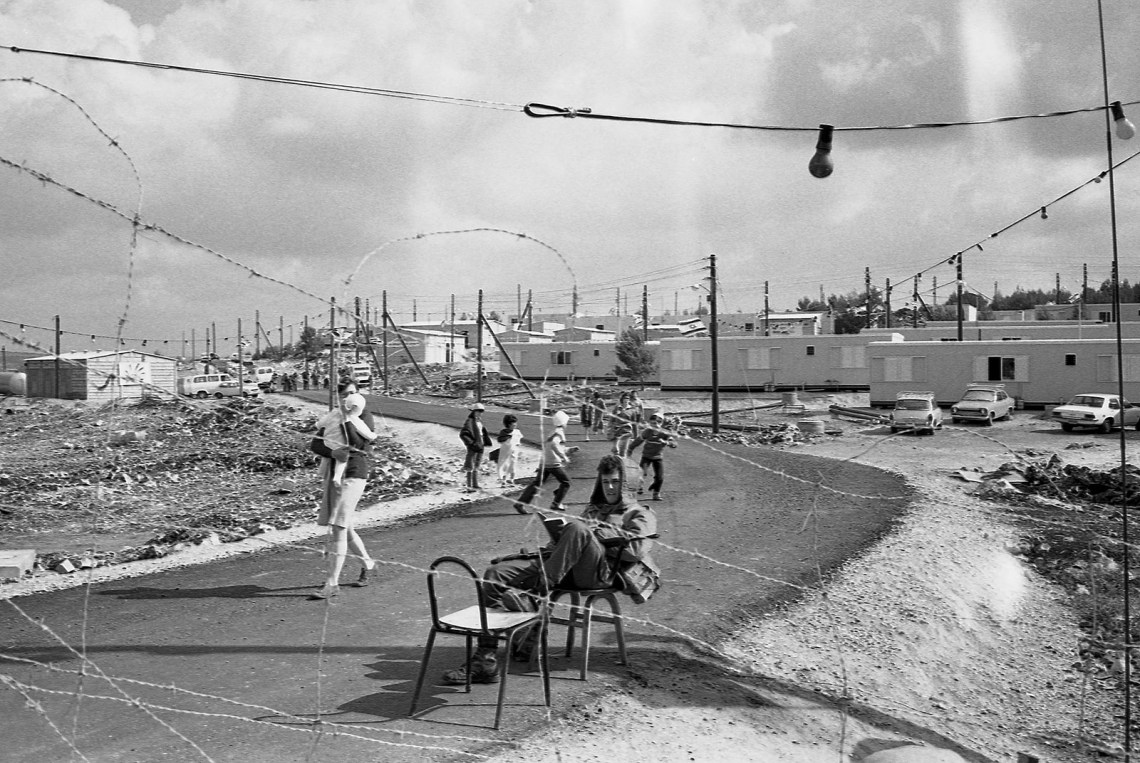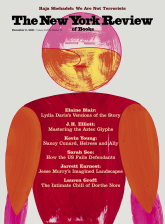This article was first published on nybooks.com and then updated for The New York Review’s December 2, 2021 issue.
In 1978 I returned to Ramallah from my legal studies in London brimming with ideas about the importance of the rule of law and the possibilities for using international law to resist the Israeli occupation. The following year, I along with two colleagues—a recent Yale graduate named Charles Shamas, who was promoting economic development in Ramallah, and the American lawyer Jonathan Kuttab—established an organization we called Al Haq (Arabic for “The Truth”) as an affiliate of the International Commission of Jurists (ICJ) in Geneva. Al Haq was among the first human rights groups in the Arab world and the first and only one of its kind in the Israeli occupied territories.
Al Haq’s earliest major activity was to document the extensive changes to local laws that Israel enacted in the occupied West Bank. These military orders were designed to enable Israel to carry out acquisitions of land—acquisitions that were clearly in violation of international law—for the building of Israeli settlements, which were also illegal. In The West Bank and the Rule of Law, a study Jonathan and I wrote that was published jointly by Al Haq and the ICJ in 1981, we showed that these orders had been withheld from public view. That Israel was thus using secret legislation to break international law was a national embarrassment, though the existence of the legislation was denied by the government and initially challenged by a number of Israeli journalists. After investigating the matter, these journalists learned that we had not exaggerated and that indeed these orders had not been published.
Throughout the more than four decades since Al Haq’s founding, the organization has continued to serve the objectives for which it was established: documenting and resisting through the law Israeli human rights violations, including the mistreatment of prisoners, the economic exploitation of the occupied territories’ natural resources, and the building of illegal settlements. After the establishment of the Palestinian Authority, following the Oslo Accords of 1993–1995, Al Haq’s purview expanded to cover violations committed by the PA, to which Israel had transferred certain civilian powers. Thanks to this record of impartial commitment to the law, Al Haq has become a trusted resource for numerous international human rights organizations, as well as for the United Nations and governments throughout the world.
The Israeli government has persistently tried to discredit our group and our work. In our early days, officials attempted to smear Al Haq by calling it a cover for the then illegal Palestine Liberation Organization; later they declared us an arm of one of the PLO’s more radical factions, the Popular Front for the Liberation of Palestine. Both were preposterous accusations. Nevertheless, between 1979 and 1993, when I acted as Al Haq’s codirector, I spent many sleepless nights worrying about what the official reprisals might be against our forthright and damning reports on the occupation. This policy of smearing the organization rather than attempting to end the human rights violations it brought to light continues to this day.
Besides doing their best to discredit Al Haq’s human rights reports, the Israeli authorities often called me in for questioning about my involvement with the organization, and they pressured my father, also a lawyer, to persuade me to stand down from my post. Meanwhile, our field-workers were harassed, members of the staff detained, and other associates prevented from traveling. And yet during the 2002 reinvasion of the West Bank, when the Israeli army trashed a number of offices belonging to NGOs, as well as those of the Palestinian Authority itself in Ramallah, Al Haq was spared. The government never felt so emboldened by its sense of total impunity that it would designate Al Haq a “terrorist organization”—until now.
I was on vacation in Edinburgh, Scotland, on October 22 when I heard this shocking news—that the Israeli minister of defense and deputy prime minister Benny Gantz had issued an order declaring that Al Haq and five other Palestinian NGOs were terrorist organizations. The implications of this action are devastating.
The government order is likely to be followed by one from the Israeli military commander in the West Bank adding Al Haq to the list of organizations proscribed under the British Mandate’s Defence (Emergency) Regulations of 1945, which remain in force in the Israeli-occupied West Bank. With this designation, anyone working for or providing services to Al Haq, or even expressing support for it, will be subject to arrest on charges of terrorism. The organization’s financial assets will be confiscated and Israeli banks will stop any funding from reaching it.
In other words, this important human rights organization, which has through its legal work over the years played such a vital part in providing information about Israeli violations of the law, will be neutralized. There will be one less bulwark to resist such transgressions against the Palestinian inhabitants of the occupied territories, who are supposed to enjoy protection under international law.
Advertisement
Fifty former staff members, many of whom have assumed high positions in international organizations around the world, have published a statement crediting Al Haq as an incubator for human rights activists and stressing that their work with the organization was formative for them. Gantz’s order has provoked strong reactions in Israel and abroad. Human Rights Watch and Amnesty International, both of which work closely with Al Haq, issued a joint statement calling the Israeli action an “appalling and unjust decision” and describing it as “an attack by the Israeli government on the international human rights movement.” In an editorial on October 24 the leading Israeli newspaper Haaretz condemned it as “a stain upon Israel,” adding:
The literal meaning is clear: All resistance to the occupation is terror. Israel is undermining the distinction between legitimate and illegitimate struggle.
This is a boon to terrorist organizations and the use of violence. If all forms of resistance constitute terror, how can one resist the occupation without being a terrorist?
Will such criticism force Gantz to rescind the order? It’s highly unlikely. For the time being, while the issue is in the public eye, the government may refrain from taking any action against Al Haq and its employees. But this will be only a temporary reprieve. The Israel Defense Forces, which have full control over the West Bank, will surely use the order and its powers to strike against Al Haq as they do against any other “terrorist” group.
Why now? one might ask. The most probable answer is that Al Haq has recently given strong support to the International Criminal Court (ICC) by supplying evidence for its investigation of war crimes by Israel during the 2014 Gaza War. (The ICC is also looking into accusations against the Palestinian militant group Hamas of war crimes in that conflict.) Among the individuals who could be named in such an indictment would be Gantz himself, who was commander in chief of the Israeli military in 2014.
This only underlines how important it is for the ICC to succeed in its efforts to hold Israel to account—and how important it is to frustrate the US government’s attempts to obstruct the ICC’s work toward justice for Palestinians. The Israeli government’s perception that it is immune from any such prosecution has emboldened it to keep breaking international law over the years—as this latest order against Palestinian NGOs demonstrates.
I’ve always been proud of Al Haq, and of my work in helping to establish the organization and safeguarding its international credibility. My pride will not be diminished by this branding of it as a terrorist entity. Nor will I, a lifelong resident of Ramallah, cease my support for it, whatever the consequences.
—November 4, 2021
This Issue
December 2, 2021
Grand Illusion
‘And I One of Them’
Herring-Gray Skies




